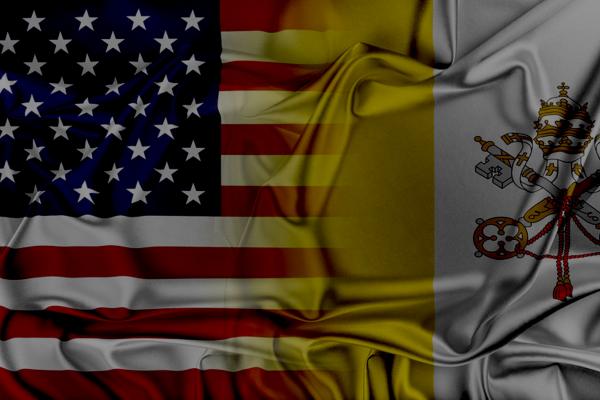"We need to be artists in the promotion of peace, we should be flexible, patient, and advocate the preservation of the simplicity of the heart." —Pope Francis
As the United States continues to navigate sensitive diplomatic channels with Cuba, Palestine, Russia, and Iran, an unlikely actor has emerged: Pope Francis.
In just a couple years, Pope Francis has managed to skillfully inject his unique brand of diplomacy onto the world stage. Yet with all diplomatic actions, only time will tell if Pope Francis’ efforts at achieving a more peaceful world will be short lived or long-lasting. Unfortunately, some within the United States aren’t content with allowing long-term diplomatic strategies develop, and have actively sought to undermine efforts to peacefully resolve differences among nations.
The nuclear deal with Iran is one such instance. After the nuclear deal between the United States, the United Kingdom, Russia, France, China, Germany, the European Union and Iran was made public on July 14th, Vatican spokesman Fr. Federico Lombardi SJ said in a statement, "The agreement on the Iranian nuclear program is viewed in a positive light by the Holy See."
That same day, the head of the U.S. Bishops' international peace committee, Bishop Oscar Cantu of Las Cruces, New Mexico, issued a statement calling on Congress "to endorse the result of these intense negotiations because the alternative leads toward armed conflict, an outcome of profound concern to the Church."
Despite endorsements from both the Vatican and the USCCB international peace committee, every single Republican Catholic running for president has firmly rejected the Iran nuclear agreement — from New Jersey Governor Chris Christie, who called the Iran nuclear deal the "single most disturbing" chapter of the Obama presidency, to former Pennsylvania Senator Rick Santorum, who said the Iran deal "is the greatest betrayal of American national security in our history."
Yet without encounter and dialogue, how can the United States react to constantly evolving threats its national security? History has shown, from the Cuban Missile Crisis in 1962 to the Strategic Arms Reduction Treaty in 1991, that constructive dialogue between the most bitter of enemies is possible.
Some believe the economic sanctions currently imposed on Iran are deterring it from seeking nuclear weapons — that by agreeing to gradually remove sanctions, the United States is throwing away its primary bargaining chip. But despite widespread poverty and the devaluing of Iranian currency, there are few indications that harsh sanctions have deterred the Iranian government from seeking a nuclear weapon. Ultimately, maintaining or increasing sanctions will only serve to punish the average Iranian citizen and strengthen hardliners within the Iranian government.
It should be noted that hardliners in both the United States and Iran don’t support the Iran nuclear deal. Conversely, 340 rabbis have urged Congress to support the deal and young Iranian men and women danced in the streets of Tehran because their president, Hassan Rouhani, kept his campaign promise to end economic sanctions, reverse the policy of international isolation, and ease the threat of war.
Those opposed to the Iran deal cite the risk of nuclear proliferation in the region. However, for decades, the Vatican has been a leading force in calls for nuclear disarmament. It’s unlikely Pope Francis and the Vatican would support the Iran deal if they believed other nations in the region had a greater chance of acquiring nuclear weapons.
Pope Francis recently declared the theme of the 2016 World Peace Day will be "Overcome Indifference and Win Peace." Such a theme reflects the genuine desire by Pope Francis to create pathways to lasting peace through encounter and dialogue. His Holiness understands that indifference breeds hatred, and that hate is the enemy of peace. Without encounter and dialogue, hatred has the opportunity flourish unabated.
In a speech at the 2014 World peace Day, Pope Francis recognized international agreements and national laws alone aren’t enough to protect humanity from the risk of armed conflict. What is needed, the pope believes, is "a conversion of hearts… which would permit everyone to recognize in the other a brother or sister to care for, and to work together with, in building a fulfilling life for all."
If through this nuclear deal, the United States can create a culture of encounter and dialogue with those who seek peace within Iran, I think Pope Francis would agree the deal was well worth the real or imagined risks.
Got something to say about what you're reading? We value your feedback!

